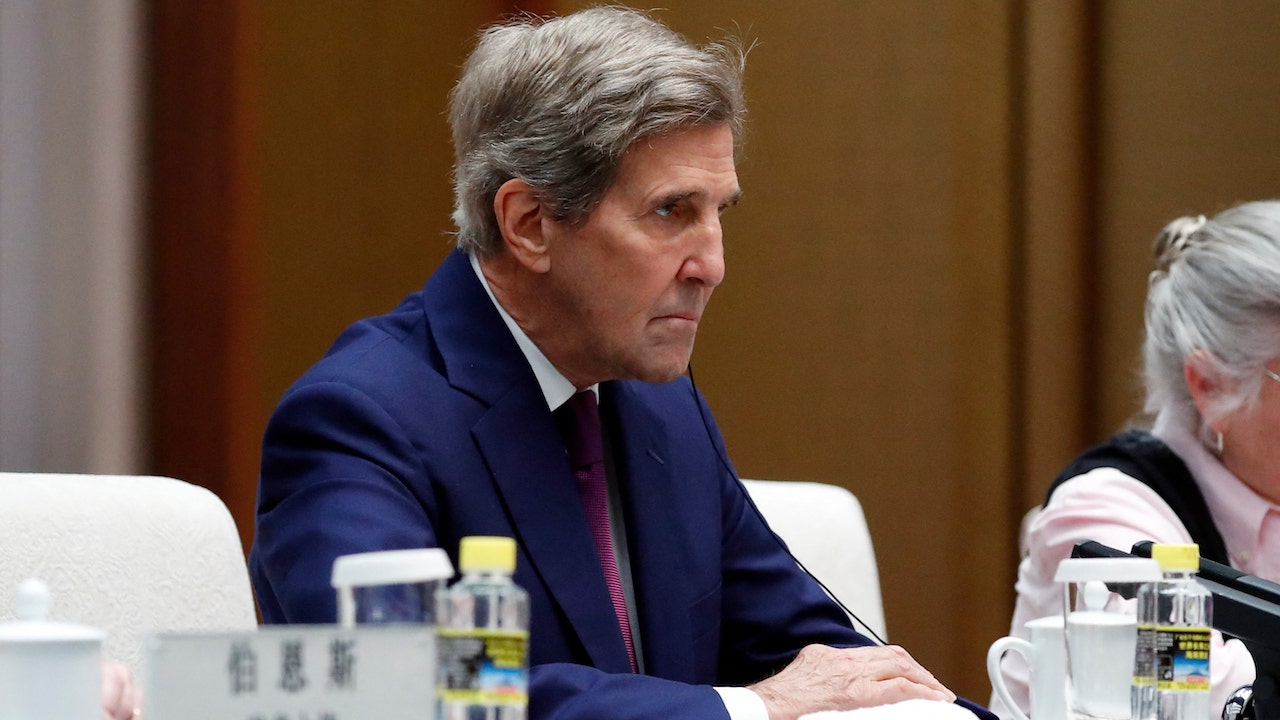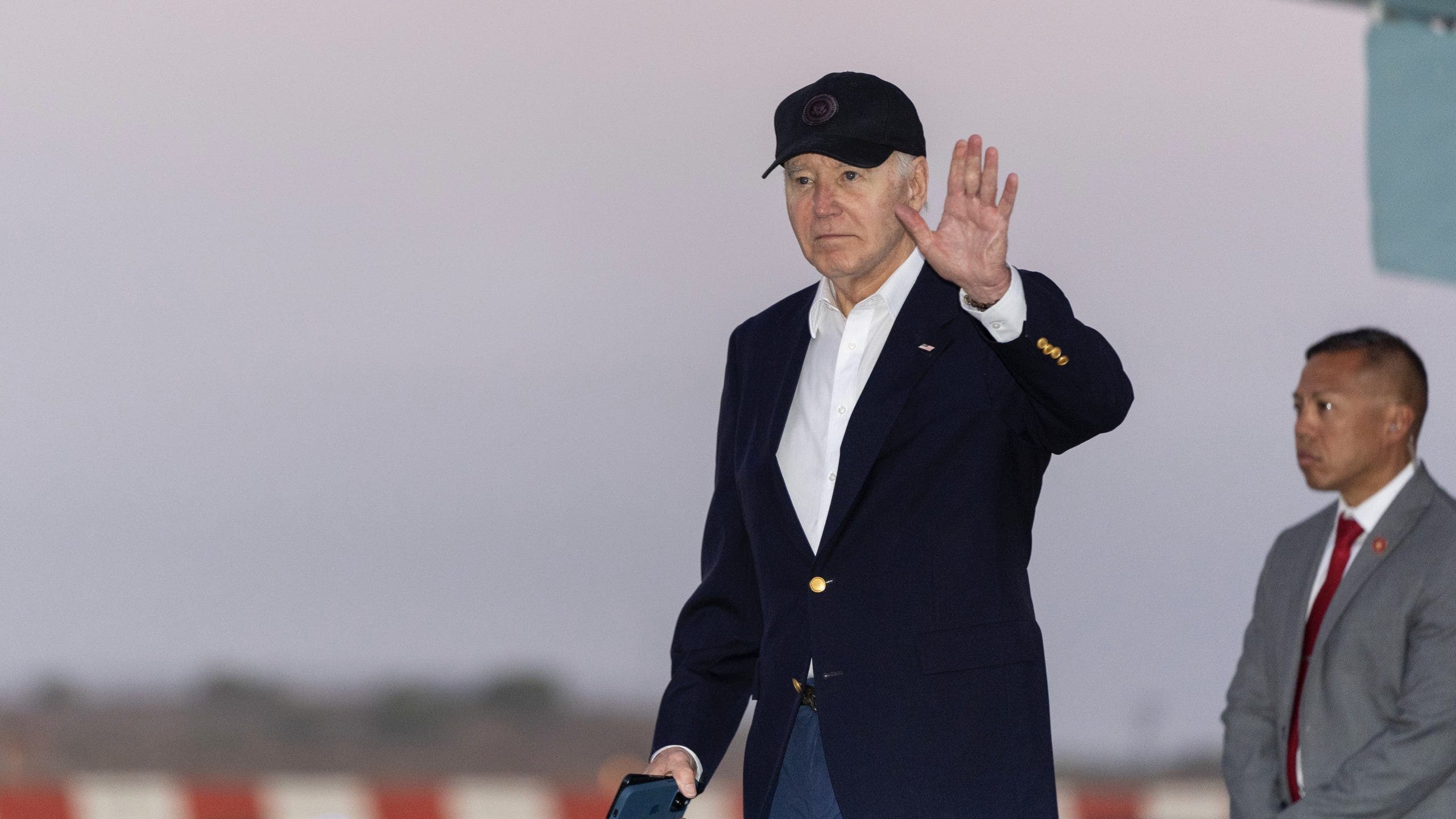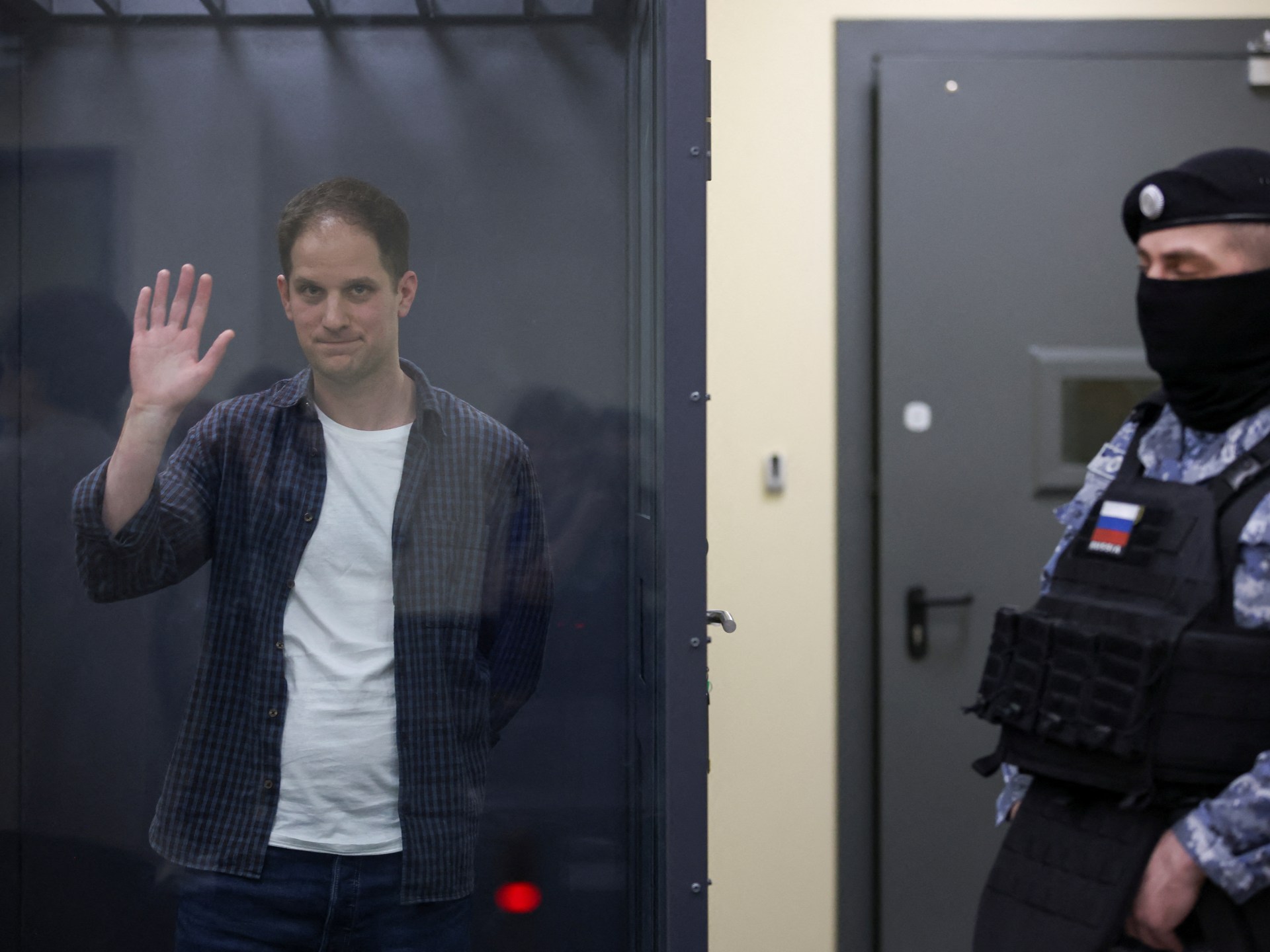Entertainment
In 'The Jinx — Part Two' finale, Andrew Jarecki says Robert Durst was enabled by wife and siblings
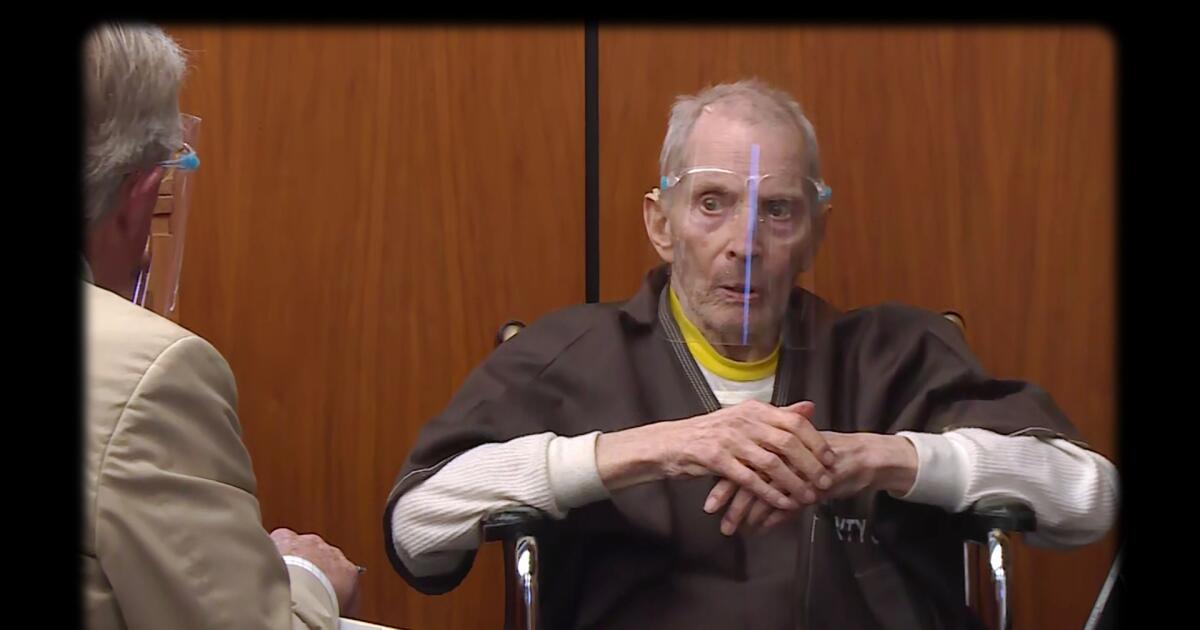
Filmmaker Andrew Jarecki has spent much of the last 20 years thinking about Robert Durst, the notorious real estate heir who was suspected in multiple murders but managed to evade justice until the very end of his life.
Jarecki’s Emmy-winning 2015 docuseries, “The Jinx: The Life and Deaths of Robert Durst,” thrust Durst into the spotlight by revisiting the mysterious deaths to which he was linked: the 1982 disappearance of Durst’s first wife, Kathie McCormack Durst; the murder of his best friend, Los Angeles writer Susan Berman, in 2000; and the grisly killing and dismemberment of his elderly neighbor, Morris Black, in 2001. And it famously led to Durst’s arrest in New Orleans the day before the broadcast of the explosive yet controversial finale in which he muttered, “killed them all, of course” to himself while in the bathroom.
In “The Jinx — Part Two,” a six-episode follow-up that concluded Sunday on HBO and is available to stream on Max, Jarecki looks at the dramatic events that have unfolded since Durst’s quasi-confession aired on national television and triggered a craze for high-end true-crime documentaries. This time around, the focus is less on Durst and his damaged psychology and more on the circle of friends and confidantes who helped him along the way.
“When we were making the first ‘Jinx,’ we would say, ‘How do you kill three people over 30 years and get away with it? It takes a village,’” said Jarecki, in a windowless editing suite in Chelsea, where he was joined by executive producer Zac Stuart-Pontier, who after 15 years in “The Jinx” world has a nearly instant recall of all things Durst-related. The conversation, which was scheduled for a half-hour, instead stretched to 90 minutes, an indication that the documentarians are nowhere near finished talking about Durst, who died in 2022 — or the friends and family who enabled him for years.
“This idea of complicity was for us so fascinating because it broadens the story,” Jarecki said. “Who are these people who see themselves as good, honest, decent people and don’t see themselves as accomplices in anything?”
Sunday’s finale, fittingly titled “It Takes a Village,” takes a critical look at the people who understood Durst — and what he was capable of — better than anyone: his siblings, Wendy, Douglas and Thomas; and his second wife and heir, Debrah Lee Charatan, who did not sit for an interview but is present in the series through video depositions and often riveting prison phone calls with her husband. The series portrays her as a shrewd opportunist, more consigliere than spouse, who helped Durst safeguard his fortune through numerous legal battles, used his wealth to amass a real estate empire of her own, and is now fighting a wrongful-death lawsuit from Kathie’s family, the McCormacks.
Robert Durst and his friend Susan Berman, who was killed in 2000.
(HBO)
“This is a person who’s really played the long game,” said Jarecki, whose 2010 feature film “All Good Things” was inspired by Durst — and led to his participation in “The Jinx.”
The finale recounts the history of Charatan’s relationship with Durst, which began in the late 1980s, when she was newly divorced and freshly bankrupt, and he was a wealthy eccentric rumored to have killed his first wife. The couple married in a secret ceremony in 2000, shortly after authorities in Westchester County, N.Y., reopened the investigation into Kathie’s disappearance — and days before Berman was shot in the head.
The series concludes with a dramatization of a woman resembling Charatan driving a luxury convertible down a scenic road and arriving at a palatial waterfront estate. It is intercut with deposition footage of the real Charatan, who is interrogated about sticking by Durst as he was accused of horrific things. “Was it worth it?” asks an attorney for the McCormack family. “I think so,” she says.
“I think she thought, ‘Well, I’m gonna make a calculation, that there’s so much value in staying connected to this person [Durst], because he’s going to die with 100-plus million dollars,’” Jarecki said. “By the way, it was hard, what she did — managing Bob for all those years. That was not easy. He’s an incredibly time-consuming, infuriating partner.” (Exhibit A: In one tense video call shown in the series, Durst clashes with Charatan over payment of his legal fees, threatening to write her out of his will. She skillfully walks him back.)
Charatan’s relationship with Durst came under more scrutiny following his death in January 2022. Because of a legal technicality in California, his conviction for Berman’s murder was abated — essentially vacated. This triggered the McCormack family to file a $100-million wrongful-death lawsuit against Durst’s estate, which is controlled by Charatan.
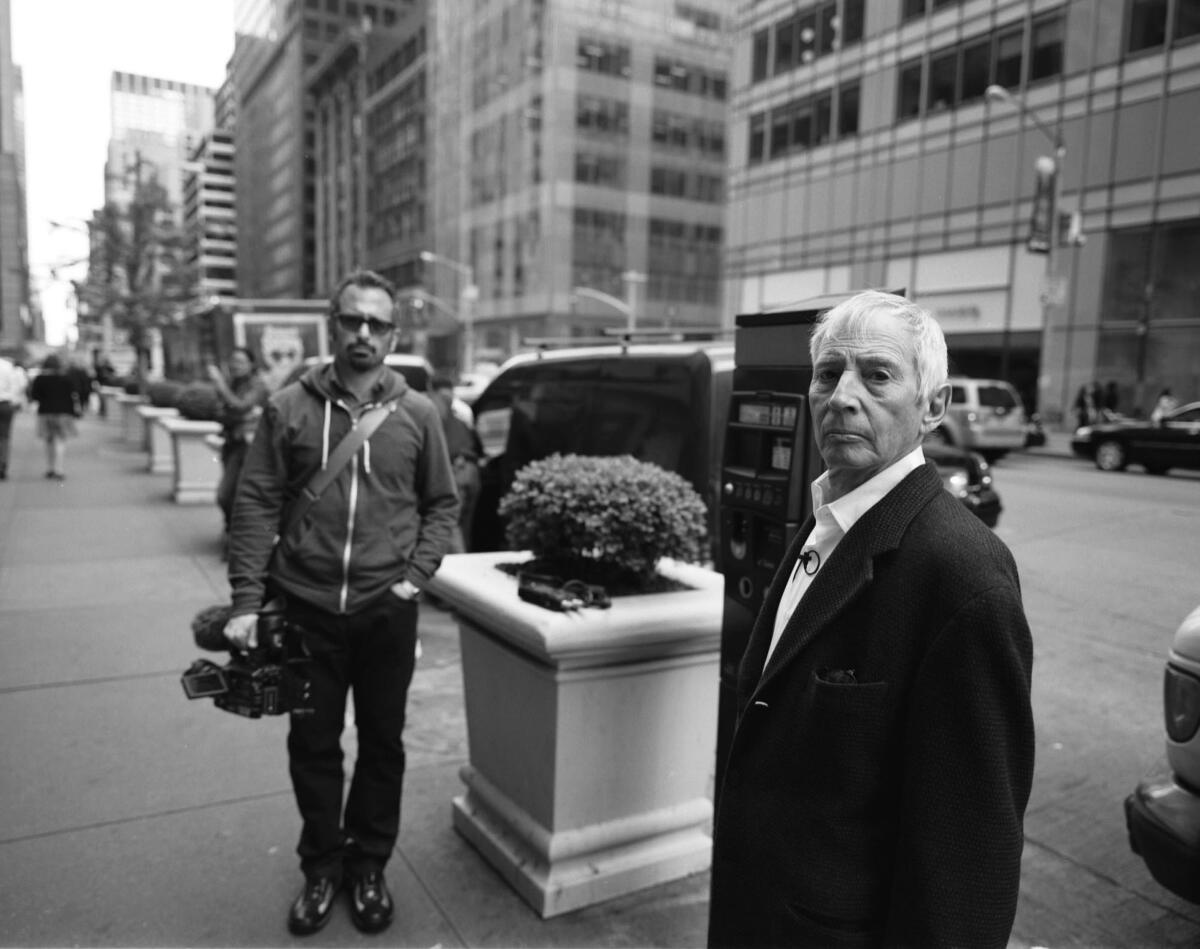
Director Andrew Jarecki, left, and Robert Durst.
(HBO)
Charatan sat for a deposition in the case. In portions that appear in “The Jinx,” she admits to living with another man throughout her marriage to Durst and says that she “respects” the jury’s guilty verdict in the Berman case. However, she says she does not believe that Durst killed Kathie.
“She has had so many chances to redeem herself, including potentially being in the show,” Jarecki said. “She could have explained why she was with him. She could have explained what she really believed.” The filmmaker said he tried to get Charatan to participate in the documentary, even going to dinner with her multiple times to plead his case, but was not successful.
“It Takes a Village” also considers the role played by Durst’s estranged younger siblings, who in deposition testimony say that they feared their older brother and even suspected he may have had something to do with Kathie’s disappearance but did little to assist the investigation at the time. They also reportedly never reached out to the McCormack family to offer support or condolences.
In audio testimony, Thomas Durst says that his siblings Wendy and Douglas never mentioned Kathie again after the disappearance: “It was like she had become a non-person and I decided, ‘You know what? Kathie is not just missing. Kathie’s dead, and Bob is responsible — but I don’t know what I can do.’”
Kathie’s body was never found, and in 2017 she was declared legally dead. Durst was formally charged with her death in 2021, but he died before a trial got underway.
“What would it have cost for them to reach out to Kathie’s family and say: ‘Listen, we didn’t kill Kathie. But boy, we feel terrible about what happened. And we want to make some kind of a contribution for you,’” Jarecki said. “They didn’t have to admit their complicity, but at least it would have been an acknowledgment.”
“The Jinx” also captures the moment when Jarecki receives a phone call informing him that Durst is dead. Though his demise was not exactly surprising — Durst was 78 and had been in failing health for years — it still left him nonplussed, Jarecki said. “He had been in my life for so long, it didn’t feel real that he was going to disappear,” he said. “I didn’t miss him. I didn’t think, ‘Oh, we had these beautiful times together.’ … I just thought, I actually don’t know how I feel about this.”
In the months before his death, Jarecki and Stuart-Pontier said they worked together on numerous drafts of a letter to Durst, pleading with him to come clean about what happened to Kathie. But Durst never revealed what he knew about her fate.
The gist of the letter was that Durst should “just tell people what happened with Kathie,” Jarecki said. “Maybe it was a terrible accident. Whatever it was, even if it’s bad, even if it makes you look terrible … everybody’s going to say, ‘Even though he did some terrible things, before he died he somehow found a way to have a little tiny bit of redemption.’” Jarecki believed that Durst saw himself as fundamentally misunderstood and tried to appeal to that.
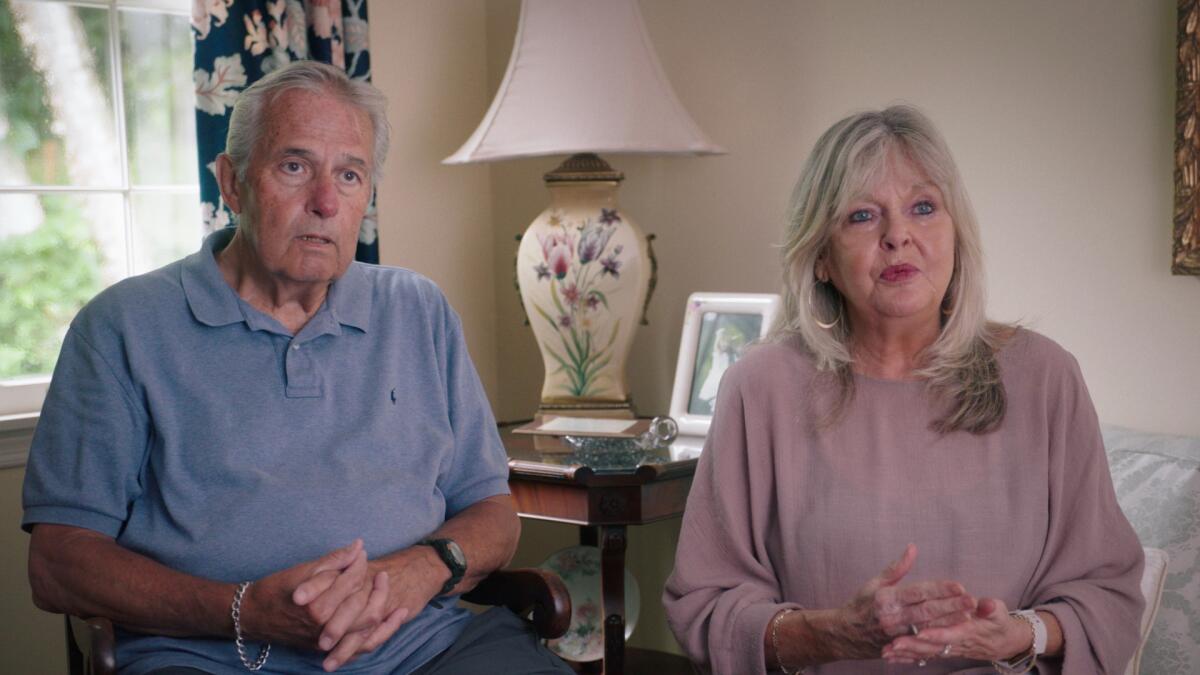
Jim McCormack, brother of Kathie Durst, and his wife, Sharon McCormack, in “The Jinx — Part Two.”
(HBO)
“One of the reasons why he agreed to talk to me to begin with is that he had applied to get into a co-op building and was rejected,” he said. “And his attitude was like, ‘Oh, I’ve never been convicted of murder. So why are they treating me like a pariah?’”
They decided not to send the letter because “it was inserting us in the story in a way that might alter [it],” said Jarecki, who believes that Durst killed Kathie because she had accomplished so much and thrown into relief how little he’d done despite extraordinary privilege. “Bob is a faker, and Bob knows he’s a faker,” he said. “Kathie comes along and falls in love with him, and at a certain point realizes that he’s a faker. And he’s really humiliated by that.”
The filmmakers began to think about another season of “The Jinx” as they reviewed testimony from conditional witnesses in the Berman case — people like Nick Chavin, the longtime friend turned “secret witness” against Durst. “There’s nothing like friends turning on each other,” Stuart-Pontier said. “That was the first inkling that the people around Bob were going to really play a huge part in the telling of the story going forward.”
“The Jinx — Part Two” makes the case that before Berman became one of Durst’s victims, she was one of his enablers. Perhaps the biggest bombshell of the season is the audiotape of an interview Berman did with journalist Albert Goldman a few days after Kathie’s disappearance, in which she smeared her friend’s character and planted the idea that she’d been the victim of a robbery — all of which suggested she was helping Durst cover up a crime.
The theme of complicity is, if anything, more relevant in the current political climate than it was when Season 1 of “The Jinx” aired in 2015, just a few months before Donald Trump announced he was running for president. It’s difficult to watch Season 2 without thinking about the biographical similarities between Trump and Durst, controversial scions of powerful New York real estate dynasties known for acting with impunity.
“All of this stuff is very current,” Jarecki said, noting how Republicans who once denounced Trump have since fallen back in line. “We’ve talked about why ‘The Jinx’ matters now. But it just feels like this idea of complicity is so important to what’s happening.”

Entertainment
Francis Ford Coppola's epic gamble 'Megalopolis' lands distribution from Lionsgate
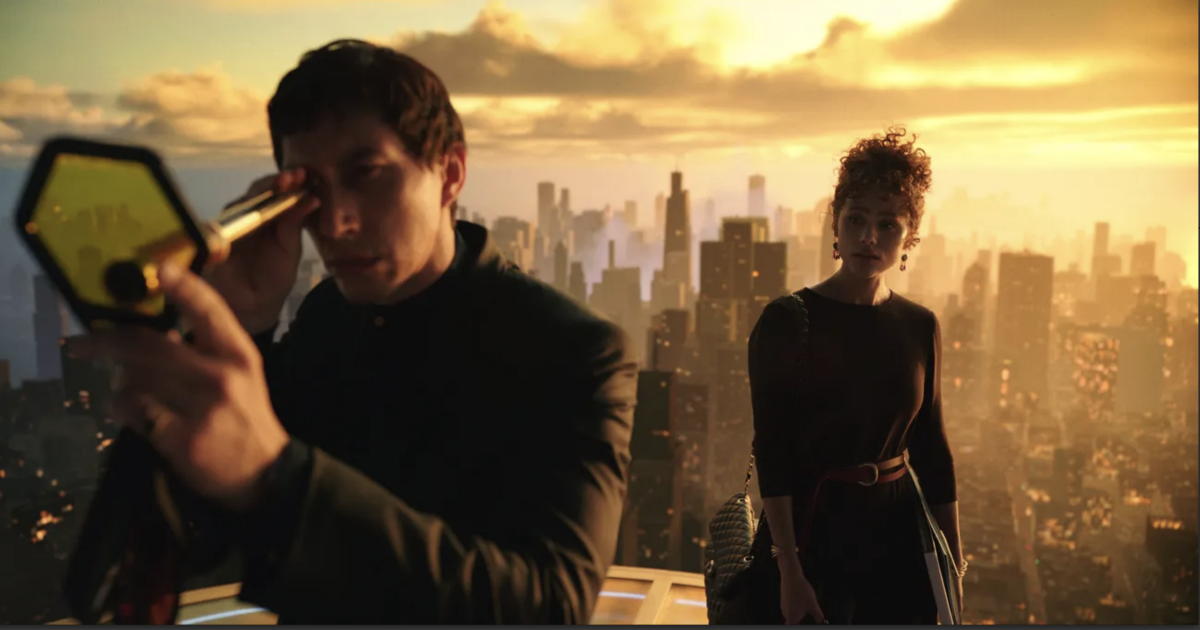
Lionsgate on Monday said it has picked up the rights to Francis Ford Coppola’s “Megalopolis” for the U.S. and Canada, ending months of speculation over which studio might distribute the famed director’s epic passion project. The film will hit domestic theaters, including Imax screens, on Sept. 27.
“Megalopolis” is the first new film from the five-time Oscar winner since 2011’s “Twixt” and Coppola is reported to have invested some $120 million of his own money, raised from the sale of part of his wine business, to pay for the ambitious tale.
With a cast that includes Adam Driver, Aubrey Plaza, Giancarlo Esposito, Nathalie Emmanuel, Talia Shire, Jason Schwartzman, Chloe Fineman, Jon Voight, Shia LaBeouf and Laurence Fishburne, the film is a sweeping fable surveying power struggles set against a fictionalized New York, refashioned to seem like New Rome.
Director Francis Ford Coppola gives a press conference for his film “Megalopolis” during the 77th Cannes Film Festival on May 17.
(Zoulerah Norddine / AFP via Getty Images)
When the film premiered last month at the Cannes film festival, The Times’ Josh Rothkopf wrote that if “Megalopolis” becomes the last effort from the 85-year-old “Godfather” filmmaker, then “he’s going out not with something tame and manicured but with an overstuffed, vigorous, seething story about the roots of fascism that only an uncharitable viewer would call a catastrophe.”
“It may be the most radical film he’s ever done,” Rothkopf wrote.
Lionsgate has a longstanding relationship with Coppola and his American Zoetrope banner, having previously handled home entertainment releases of his “Apocalypse Now Final Cut,” “The Conversation,” “The Cotton Club Encore,” “Tucker: The Man and His Dream” and “One From the Heart: Reprise.”
While speaking at the film’s Cannes press conference, Coppola referred to the bold, stylistic leap of “Megalopolis” by saying, “I knew the film was not like other films that are out. It’s how I felt the film should be, and since I was paying for it I thought I was entitled [to do it my way].”
Movie Reviews
Movie Review – Inside Out 2
Back in 2015, Disney and Pixar introduced us to 11-year-old Riley and the squabbling emotions inside her prepubescent head. To make a long story short, Joy (Amy Poehler) tried to retain dominance over the girl, but Sadness (Phyllis Smith) kept creeping her way in. The struggle led to both emotions getting kicked out of Riley’s conscience. Following an adventure through the girl’s psyche, both emotions made their way back and Joy realized that she had to share Riley with other emotions, even unpleasant ones, in order for her to get the most out of life. In this new movie, Riley’s five core emotions want to retain dominance over the girl, but new emotions creep their way in. This leads to a struggle where the old emotions get kicked out of Riley’s conscience. They’ll have to go on an adventure through the girl’s psyche to make their way back and hopefully obliterate the new emotions. Or maybe they’ll learn to share and the message will be exactly the same as in the first movie.
For the record, I wasn’t a big fan of the first movie. Don’t get me wrong, I thought it was okay, and it kept the streak of at-least-passable Pixar alive until “Lightyear” two years ago. But setting up this elaborate world of personified emotions led to countless questions that the movie wasn’t prepared to answer, and without answering those questions, it didn’t make sense. Sometimes the nonsense played to its adventage, like a deus ex machina toward the end involving stackable crushes. Other times it hurt the movie, like leaving me wondering if these characters even had lives that were at stake, and what might happen to Riley if those lives were lost. The new movie raises more new questions than it answers, but this time I’m a little more comfortable knowing that the movie is prepared to answer some questions and not others.
For the new movie, Riley (Kensington Tallman) is going to hockey camp with her best friends Grace (Grace Lu) and Bree (Sumayyah Nuriddin-Green). Joy is looking forward to guiding her, along with core emotions Sadness, Anger (Lewis Black), Disgust (Liza Lapira), and Fear (Tony Hale). But Riley hits puberty the night before the camp, ushering in new emotions Anxiety (Maya Hawke), Envy (Ayo Edebiri), Embarrassment (Paul Walter Hauser), and Ennui (Adele Exarchopoulos). Anxiety proves useful in a few social situations, but clashes with Joy when the latter wants Riley to stay loyal to her old friends, as opposed to endearing herself to the more popular Val (Lilimar). The new emotions banish the old emotions to the back of Riley’s mind until she can be completely reworked.
My problem with the movie, other than that the story progression is pretty much the same as the first movie, is once again at the literal level. I can understand a kid with conflicting emotions, but what happens when a kid is missing five of them, as is the case here? If Riley is being controlled by the four new emotions, what’s making her competent at hockey? And why do the filmmakers think that Anxiety doesn’t manifest until puberty? What are young kids famous for saying on car trips? “Arewethereyet? Arewethereyet?” That’s Anxiety, guys.
Of course, just as the “Inside Out” movies teach audiences to take the bad with the good, I must remember to take the good with the bad. And there is a lot of good here. The animation is as colorful and delightful as ever, the emotional moments had me feeling for the characters, and the humor consistently hits. My favorite gags involve cartoon characters stuck in the back of Riley’s mind. Video game character Lance (Yong Yea) is another helpful crush of Riley’s, Pouchy (James Austin Johnson) is a little too happy to provide explosives, and Bloofy (Ron Funches) is a fourth-wall breaker with no fourth wall to break (you can practically hear the Disney writers saying, “Take that, Nickelodeon!”). These characters, more than the emotions, were the highlight of this passable Pixar affair.
Grade: B-
“Inside Out 2” is rated PG for some thematic elements. Its running time is 96 minutes.
Contact Bob Garver at rrg251@nyu.edu.
Entertainment
Leo Woodall stays grounded after 'One Day,' even as more hearts are fluttering
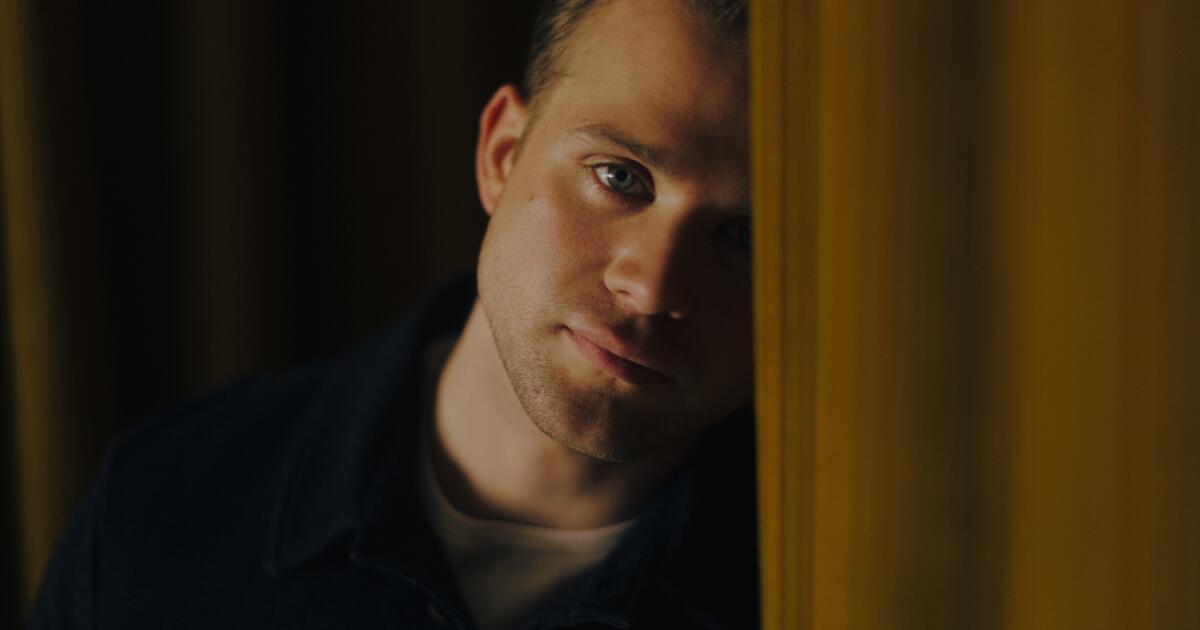
“I haven’t seen this one specifically,” Leo Woodall says as a sheepish smile — the one that has made a fair number of hearts flutter since Netflix dropped its adaptation of the angsty romantic drama “One Day,” in which he stars — stretches across his face.
Woodall is well aware there is a trove of TikTok videos that document viewers’ intensely emotional response to the series, which chronicles the 20-year torturous slow burn of unlikely friends Dex (Woodall) and Emma (Ambika Mod). His friends have passed some on, he says. But after pleasantries are exchanged at the start of this video call on a mid-May morning — with Woodall beaming in from London — I share my screen to guide him through a TikTok sampler of heartache that has been recorded.
He lets out an enthusiastic chuckle as he braces for impact.
There’s a young woman, draped in a green blanket, in various states of complete anguish. Another video is a close-up shot of a young woman wiping tears from her face while watching an early interaction between Dex and Emma with the caption: “Me 2 days later still crying watching edits.” The final video features a viewer who has just completed the series, camera turned to her face as she lies in utter despair against a pillow. One by one, Woodall lets out a guilty whimper or “Oh, noooo!” as he screens them.
“We could watch these all day,” Woodall says as the brief presentation nears its end.
“I was just very intrigued and anxious to know what people thought and how they were responding to it,” Leo Woodall says of the launch of his “One Day.” He needn’t have worried.
(Jennifer McCord / For The Times)
“In the beginning, when the show came out, I was trying to keep up with some of the reactions to it,” he adds. “I was just very intrigued and anxious to know what people thought and how they were responding to it — if they responded to it at all. But there’s something cathartic and therapeutic about it. Everyone needs a good cry. We spend a lot of our time watching things, and you don’t always have a real, emotional reaction. And I think the show really succeeded in lancing its way into people’s hearts.”
It’s also helped the actor’s rising profile, taking him from a virtual unknown to an international heartthrob. After a key supporting turn in the sophomore season of HBO’s “The White Lotus,” playing the alleged “nephew” of a gay man trying to scam Jennifer Coolidge‘s wealthy character, the 27-year-old actor sent the internet into emotional freefall in February with the launch of the adaptation of David Nicholls’ bestselling novel. In the melancholic, angst-ridden friends-to-lovers tale — previously adapted for the big screen in 2011 with Anne Hathaway and Jim Sturgess — Woodall’s Dexter is privileged and charismatic but emotionally tortured as the series chronicles his evolving friendship with his witty and stubborn BFF across two decades on the same day.
“There’s definitely a kind of projection that people put on you,” he says. “I myself have done it with actors that I’ve watched. It’s just a natural thing that you do. Being on the other end of it was kind of a strange feeling. You just can’t take it too seriously. You have to find it funny and just get on with your life a little bit. Giving it too much attention is not something I would want to do. It’s just a funny part of life now.”
Not that Woodall has had much time to make sense of the attention. Soon after “One Day” premiered, he took a breather from Instagram: “My followers were going up and up, and I was like, ‘Oh, cool.’ But then I was like, I’m going to put my phone away.” He also began production in Budapest, Hungary, on the Nazi drama “Nuremberg,” a film whose cast includes Russell Crowe, Michael Shannon and Rami Malek. With that now wrapped, he’s begun work on the fourth installment of “Bridget Jones’s Diary” opposite Renée Zellweger.
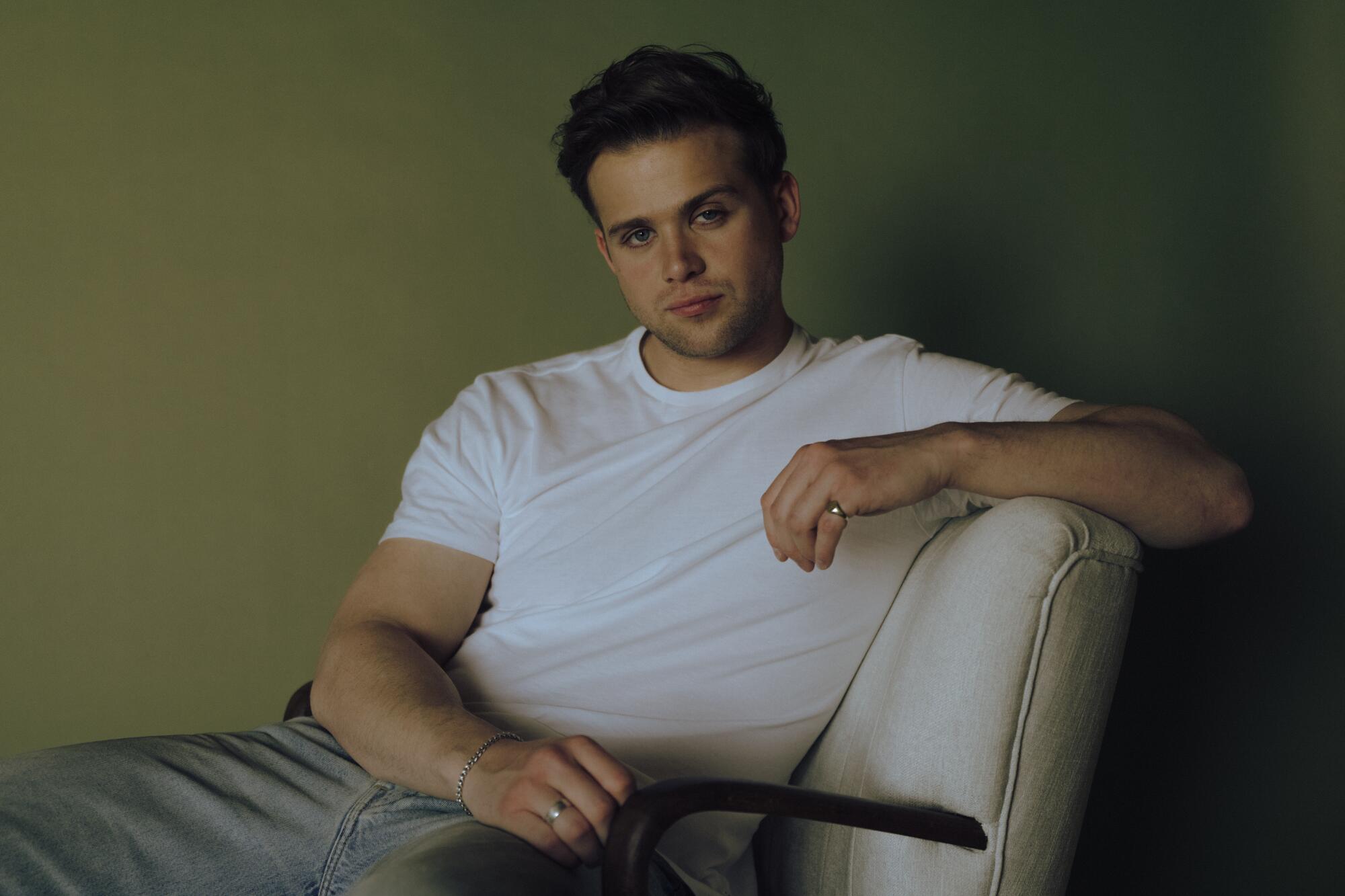
Next up for Leo Woodall? Appearing in the upcoming “Bridget Jones: Mad About the Boy.”
(Jennifer McCord / For The Times)
Although Woodall comes from a family of actors — his parents met at drama school and he is a descendant of silent film star Maxine Elliott — he hadn’t always dreamed of pursuing life as a performer. He thought maybe something sporty was in his cards. Then he discovered “Peaky Blinders” and “Skins,” and the curiosity kicked in.
“I just remember I was in a gap year, working in a bar, not doing anything of great worth for my future, and I guess I started just kind of thinking about it,” he says. “It was a few things: It was ‘Peaky Blinders,’ also ‘Skins.’ I watched the two seasons that Jack O’Connell was in. I remember seeing his character and being like, ‘Whoa, that’s fun. Whatever he’s doing, that’s cool.’ I started looking into how he got to where he was and his road to playing that character. And yeah, watching ‘Peaky Blinders’ and just felt like doing a Tommy Shelby (Cillian Murphy) impression in the mirror. [Laughs] I had the hat, and I was like, ‘Screw it, no one is looking. I’ll just do it.’ It’s so embarrassing. I would start improvising in the world of ‘Peaky Blinders.’”
He graduated in 2019 from Arts Educational School, where he studied acting, before landing minor roles in such TV shows as “Vampire Academy” and “Citadel.” He was filming “The White Lotus” when he watched the film version of “One Day” as prep work for his audition: “I didn’t know how it was gonna end,” he says. “And I remember I was in my kitchen cooking something, and I turned my eyes away for a second and I look back and Emma had been hit. And I was like, ‘What the f—? How could you do us like that?!’”
It added to his intrigue of, as he describes it, “a love story that wasn’t really just a romantic story. It’s about these two people who grow up together, and also apart. It’s about their friendship more than it is about, ‘Are they gonna get together?’ I know that is a huge part of it, but you do just see a real friendship.” Then there’s the complexity of Dex’s journey.
“He’s unbelievably fragile and vulnerable,” he says. “I think there’s a perception of him — not just from the people within the world of the story but people who have now seen the show — that he’s got kind of a reputation and you learn as you go on that he’s very insecure, he’s lonely a lot of the time. He just wants to be connected to the people that he cares about. He gets in his own way a lot of the time. But truthfully, he’s just someone who has a big, big heart. And it gets broken more than once.”
Woodall humbly scoffs when asked what he’s learned about what goes into playing a leading man — “Oh, I still don’t know. Honestly, there’s so many things to figure out still. The very beginning of shooting, I didn’t exactly know which foot to put forward. Then I was like, ‘Just do your job and be nice.’” But he’s enthusiastic about this chapter in his story.
“It’s pretty sweet, pretty fun,” he says. “I’ve been away from home for a very long time, and that can have its effects on your happiness. So I’m back in London now, and I’m very happy to be back and see all my people and still work. I hope that I can keep it up. That’s the game of acting, you just never know. There is a momentum that exists.”
-

 Politics1 week ago
Politics1 week agoNewson, Dem leaders try to negotiate Prop 47 reform off California ballots, as GOP wants to let voters decide
-

 World1 week ago
World1 week ago‘Bloody policies’: Bodies of 11 refugees and migrants recovered off Libya
-

 Politics1 week ago
Politics1 week agoGun group vows to 'defend' Trump's concealed carry license after conviction
-

 Politics1 week ago
Politics1 week agoShould Trump have confidence in his lawyers? Legal experts weigh in
-
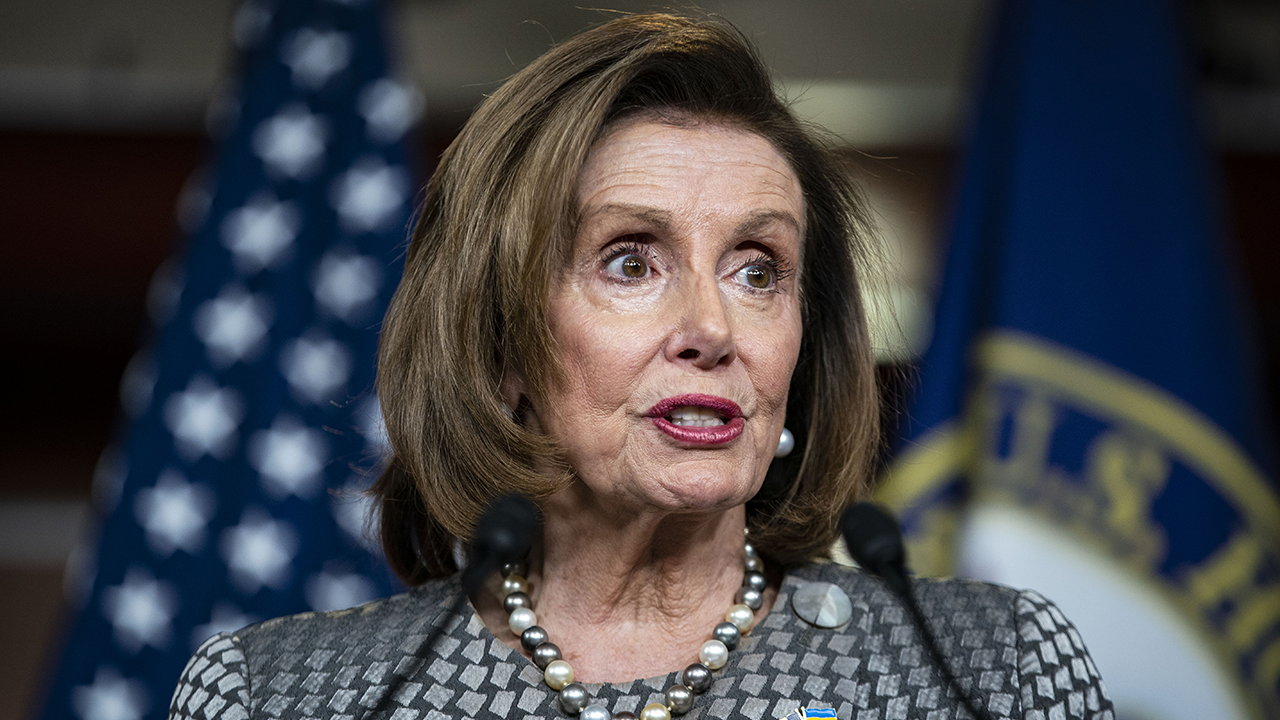
 Politics6 days ago
Politics6 days agoGOP releases Jan. 6 clip of Pelosi saying 'I take responsibility' as she discussed National Guard absence
-

 Movie Reviews1 week ago
Movie Reviews1 week ago‘Darkest Miriam’ Review: Britt Lower in a Marvel of a Drama About a Young Librarian’s Loves and Fears
-

 World1 week ago
World1 week agoOrban party loses major support in Hungary's EU election
-
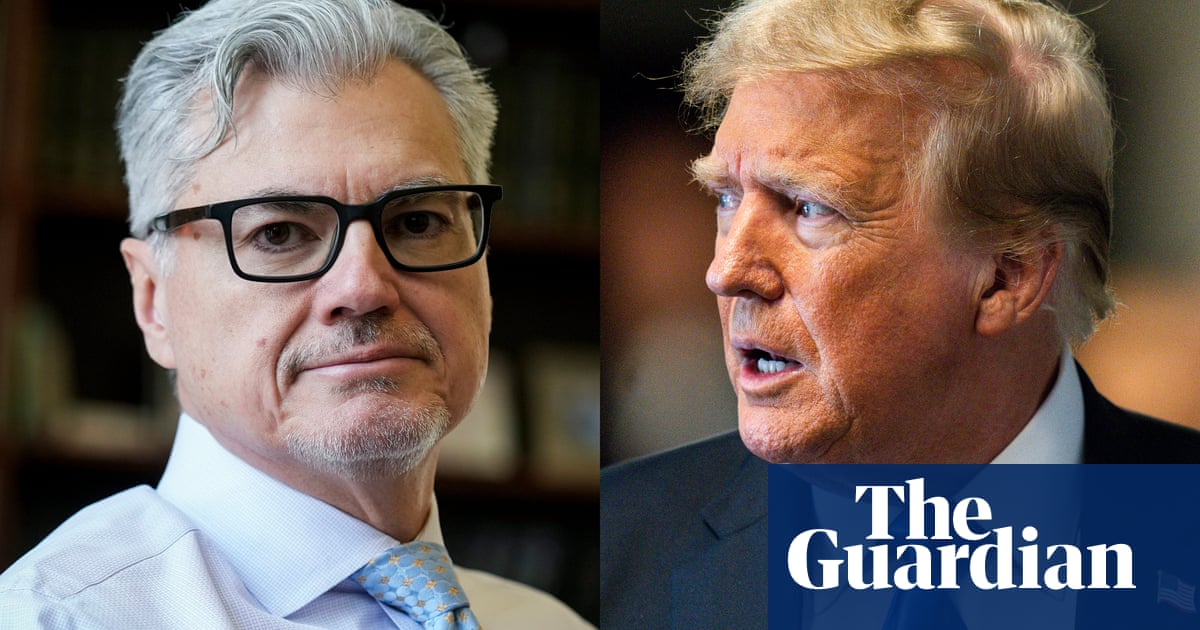
 News1 week ago
News1 week agoTrump to escalate blame on trial judge Juan Merchan if sentenced to prison
/cdn.vox-cdn.com/uploads/chorus_asset/file/23612558/Apple_WWDC22_iOS16_CarPlay_220606.jpg)

